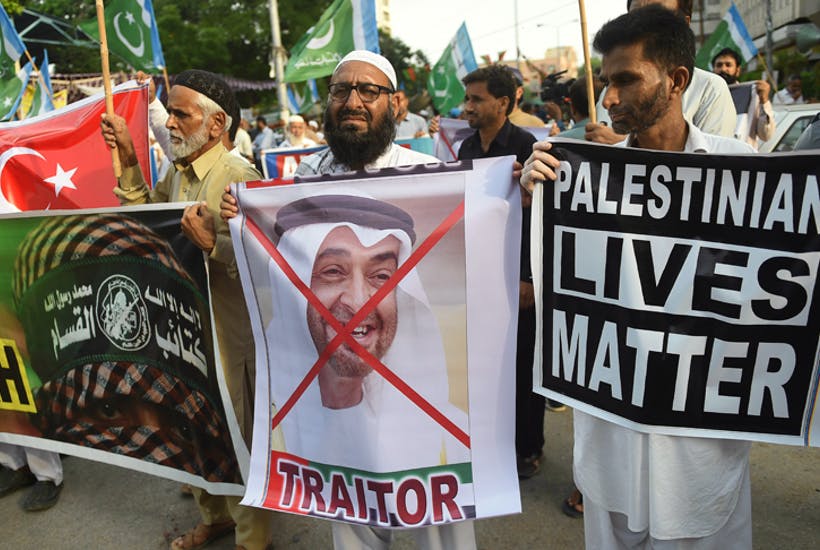On 13 August, politics in the Middle East, that most volatile of regions, transformed in what has been described as a seismic shift. A diplomatic agreement between Israel and the United Arab Emirates was announced, the first between Israel and an Arab state in a generation. This is a peace deal that normalises diplomatic relations and foreshadows further operational agreements on security, direct flights, tourism, and energy. The Washington Post declared ‘the very notion of Middle East peace had shifted under Trump’ and this is not an exaggeration. It is an historic moment.
The Middle East has come a long way since the Arab League’s infamous ‘three no’s’ Khartoum resolution against Israel after the 1967 six-day-war that declared no peace, no recognition and no negotiations. The Israeli-UAE deal marks the third Arab-Israeli peace agreement; Egypt in 1979 and Jordan in 1994.
The three leaders concluding this agreement, US President Donald Trump, Israeli PM Benjamin Netanyahu, and Crown Prince Sheikh Mohammed bin Zayed all deserve praise. They are winners – politically, diplomatically and economically.
President Trump can bank a diplomatic achievement in the Middle East vastly exceeding anything delivered by his predecessor, Barack Obama, who won a Nobel Peace Prize for essentially nothing. Even Joe Biden supported this development, saying ‘The UAE’s offer to publicly recognise the State of Israel is a welcome, brave, and badly-needed act of statesmanship’ but claiming it was built on the work of multiple administrations and omitting any mention of Donald Trump’s role.
Israeli PM Netanyahu clearly emerges as a major winner. He has again demonstrated his expertise in international diplomacy and statesmanship. Many in the Israeli left, in the Arab/Muslim world and the international community despise him, but the fact remains that during his tenure as Israel’s leader, he has broadened Israel’s diplomatic footprint and facilitated substantial economic growth.
Prince bin Zayed has positioned himself as a pace setter of reform amongst the more moderate Sunni Arab states. There is already speculation that others including Saudi, Sudan, Bahrain and Oman may follow his lead. The President of Lebanon, Michel Aoun, hinted that even his country may be open to peace talks with Israel.
Read the article by David Adler in The Spectator.

